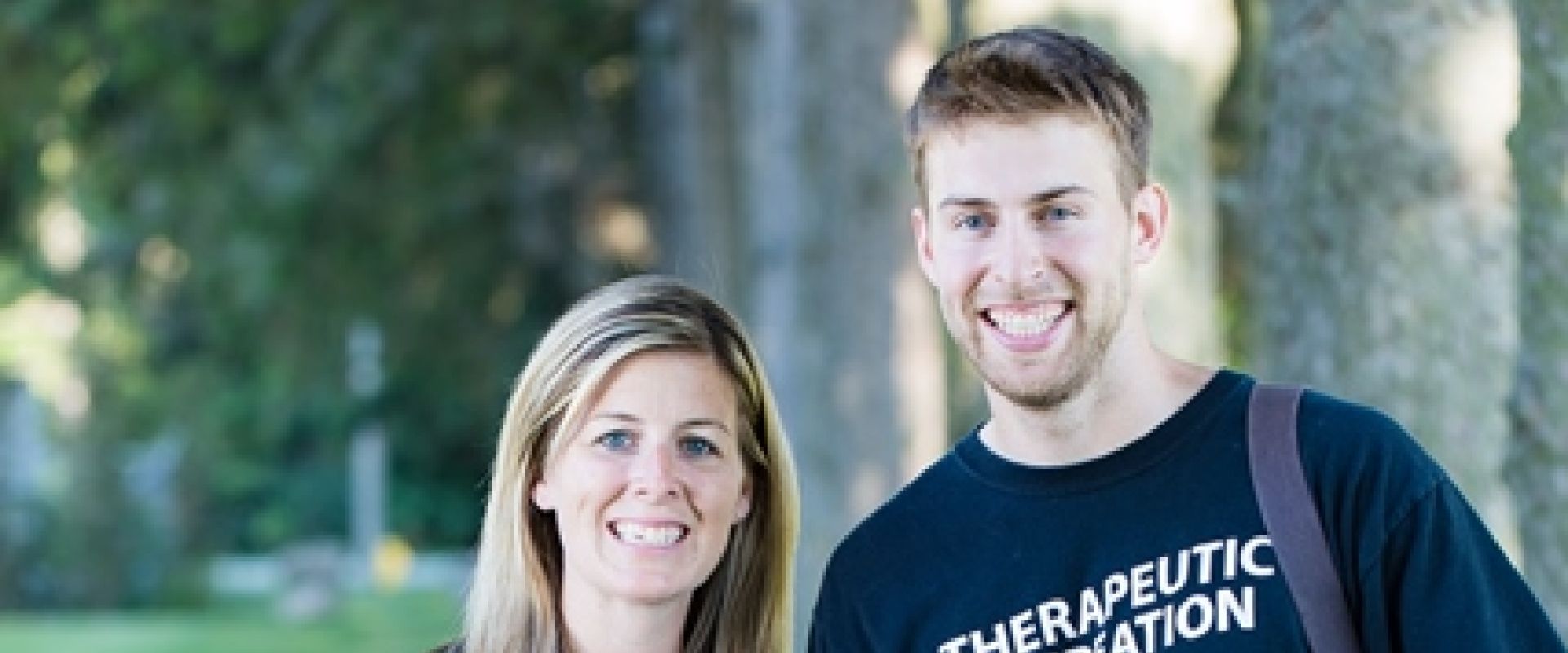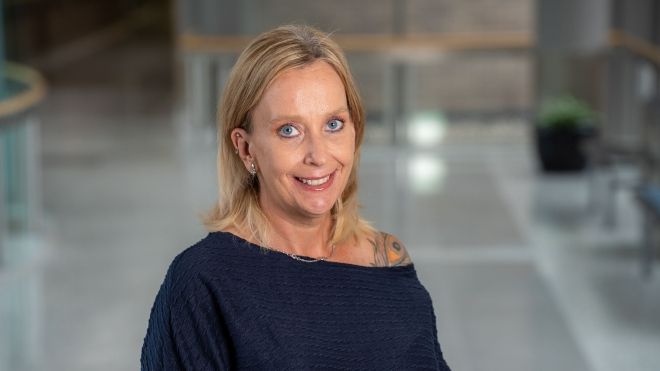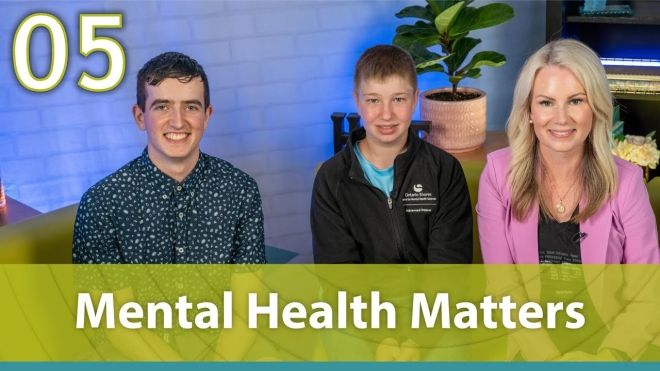
It is the “person first” approach that guides the work of Recreation Therapists at Ontario Shores. They work with patients to identify a sense of purpose and build their skills based on their specific preferences and needs. From programs as varied as community outings to sporting activities - cycling, baseball, basketball or hockey, swimming, music or art, the team works to get patients involved in things they want to do, with therapeutic goals in mind.
These opportunities for recreation empower individuals and break down barriers on their journey of recovery.
Amanda works with central recreation seeing both inpatients and outpatients who are referred or on a drop in basis. “People come to see us voluntarily and they usually have a goal in mind for what they want to achieve. They want to be here,” shares Amanda.
This makes it easier to build the rapport and learn more about the individual as they share information about themselves. “Using recreation as therapy has been very successful. Sometimes relying solely on talk therapy can be intimidating, however when you put the person in a social activity where they are having fun and feeling relaxed, it is much easier for them to open up and foster trust in a therapeutic relationship,” Amanda adds.
This is a great example of the collaborative approach to wellness where it is team coordinated care. Recreation Therapists work with other members of the professional team to create a plan of care for each person they see which are aimed at predetermined goals such as improving socialization skills, reducing anxiety, promoting an active lifestyle, or building relationships.
“It is amazing to see patients moving from passively to actively participating in activities that interests them. In the long run it is the sense of accomplishment, independence and structure that they gain from participating in these activities that may make the difference in their wellbeing. They find something that is meaningful,” says Amanda.
Jeremy works with the forensic unit creating programs for patients living in hospital. He works specifically to meet their individual needs and follows the team mantra providing a holistic approach to wellness by matching programming to the cognitive, physical, spiritual, emotional and social needs of everyone they work with.
“It is giving the patients a chance to express themselves that I love to see the most,” shares Jeremy.
Using recreation as therapy gives inpatients something to look forward to and creates a sense of normalcy in their day.
“We talk about the things that are important to them and that are meaningful to their recovery. This information gives us more opportunities to support them,” says Jeremy.
“All we do is give them the opportunities and then step back”, agrees Amanda.
Whether it is group or individual activities, they all create meaning and can provide a sense of purpose, identity and autonomy.
“Noticing the smiles on faces and seeing how those participating feel good from simply doing the things they enjoy is such a reward. My days are filled with ways to connect with others and getting to know who they truly are,” confides Jeremy
Supporting individuals on their journey and giving them something to look forward to is simply a bonus.



